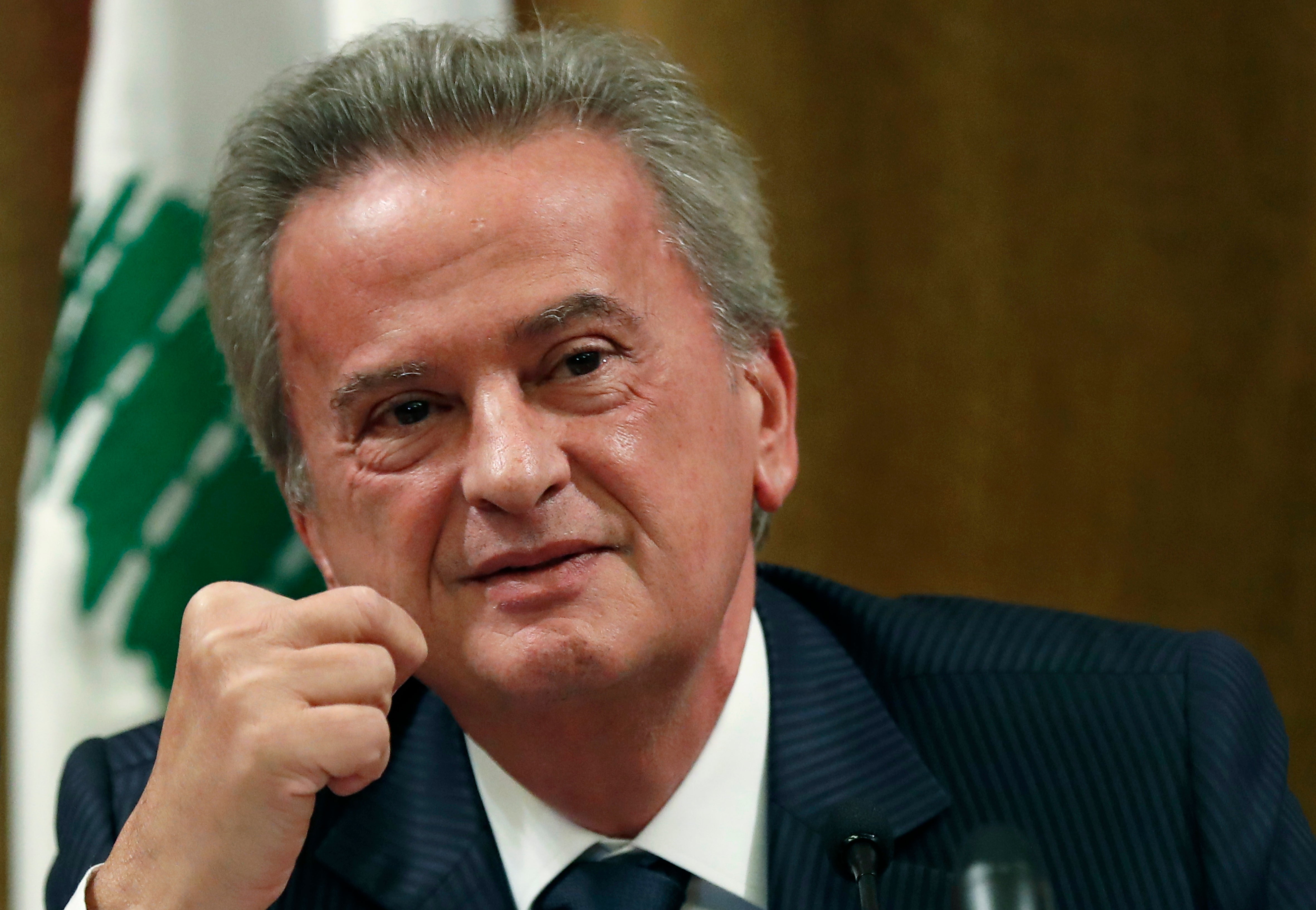French court upholds freezing of assets of Lebanon's embattled central bank chief
A French court has upheld the freezing of assets of Lebanon’s embattled central bank governor rejecting his appeal to have them released

Your support helps us to tell the story
From reproductive rights to climate change to Big Tech, The Independent is on the ground when the story is developing. Whether it's investigating the financials of Elon Musk's pro-Trump PAC or producing our latest documentary, 'The A Word', which shines a light on the American women fighting for reproductive rights, we know how important it is to parse out the facts from the messaging.
At such a critical moment in US history, we need reporters on the ground. Your donation allows us to keep sending journalists to speak to both sides of the story.
The Independent is trusted by Americans across the entire political spectrum. And unlike many other quality news outlets, we choose not to lock Americans out of our reporting and analysis with paywalls. We believe quality journalism should be available to everyone, paid for by those who can afford it.
Your support makes all the difference.A French court Tuesday upheld the freezing of the assets of Lebanon’s embattled central bank governor, rejecting his appeal to have them released, an official close to the investigation said.
Several European countries are investigating central bank Gov. Riad Salameh and his associates over myriad alleged financial crimes, including illicit enrichment and laundering of $330 million. A French investigative judge on May 16 issued an international arrest warrant, or Interpol red notice, for the 72-year-old Salameh after he failed to show up in Paris for questioning.
France, Germany and Luxembourg in March 2022 froze more than $130 million in assets linked to the investigation. The European Union Agency for Criminal Justice Cooperation, or Eurojust, said at the time that the investigation targets five suspects accused of money laundering.
Salameh, who has repeatedly denied charges of corruption had requested that his assets be unfrozen. On Tuesday, a French appeals court rejected his appeal, saying that his assets will remain frozen, according to an official close to the investigation who spoke on condition of anonymity in line with regulations.
The central governor has repeatedly said that he made his wealth from his years working as an investment banker at Merrill Lynch, inherited properties and investments. He said he would only resign if convicted of a crime.
A Lebanese judge representing the Lebanese state earlier this year charged Salameh, his brother Raja and associate Marianne Hoayek with corruption.
Last week, Hoayek was questioned in France and she signed a document pledging not to return to work at the central bank and not to have any contacts with the Salameh brothers and paid a 1.5 million-euro ($1.63 million) bail, Lebanese judicial officials said. During her questioning, Hoayek denied charges of corruption saying that most of her money were inherited from her father.
Salameh and his brother Raja didn't go to France for questioning.
During a visit to Lebanon in March, a European delegation questioned Salameh about the Lebanese central bank’s assets and investments outside the country, a Paris apartment — which the governor owns — and his brother’s brokerage firm.
Reports have circulated that the Lebanese central bank had hired Forry Associates Ltd., a brokerage firm owned by Raja, to handle government bond sales from which the firm received $330 million in commissions.
Riad Salameh, a Lebanese-French citizen, has held his post for almost 30 years, but says he intends to step down after his current term ends at the end of July.
Once hailed as the guardian of Lebanon’s financial stability, Salameh since has been heavily blamed for Lebanon’s financial meltdown. Many say he precipitated the nearly four-year economic crisis, which has plunged three-quarters of Lebanon’s population of 6 million into poverty.